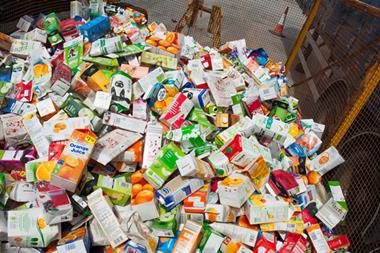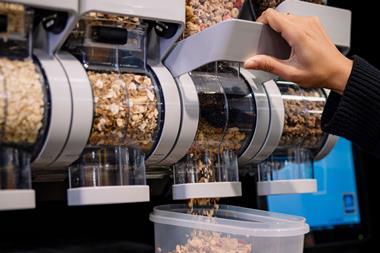
Almost half of food and drink manufacturers in the UK claim their competitiveness with the EU has fallen in the past year, The Grocer can reveal.
The findings have emerged in an industry survey by the FDF which claims continued challenges with post-Brexit border checks and bureaucracy, as well as the saga over the Northern Ireland protocol, are among the key issues holding back trade.
Whilst the survey showed food and drink manufacturers were more optimistic than they had been since Q3 in 2021, overall it found the industry expected business conditions for Q1 in 2023 to “remain the same or worsen”.
When specifically asked about competitiveness with EU markets in the past year, 47% of respondents said it had declined, compared to just 5% who said it had improved.
“Access to markets is critical for future growth in UK food and drink,” said the report, based on responses from companies representing almost a fifth of total UK turnover in the sector.
“Almost half (47%) report market competitiveness with the EU declined during 2022.”
It added: “Continued challenges relating to product and documentary checks at the border, uncertainty regarding the Northern Ireland protocol and generally disappointing business conditions in Europe has meant manufacturers have found it more difficult in the past year to access EU markets.
“In comparison, the view on competitiveness in the UK market was more positive, with 72% saying it improved or stayed the same.”
The poll comes amid frantic speculation over the possibility of a deal with the EU on Northern Ireland dominating the news agenda, alongside continued disruption to the industry from the war in Ukraine and rising energy costs.
It found businesses expected total costs to increase by an average of 10% in 2023, with half of large companies expecting cost increases of between 10% to 19%.
Labour costs were cited as one of the key factors, with 86% of companies reporting cost rises. More than a third saw labour costs rise between 10% to 19%.
The FDF said manufacturers had faced a “barrage of cost pressures” which had resulted in costs being passed on to their customers.
The report says average selling prices rose by 9% in 2022, with 38% of companies increasing their prices by between 10% to 19%.
However, smaller businesses found it far more difficult to pass on costs, with a fifth unable to do so.
The federation said companies were taking a series of measures to try to reduce costs, including nearly half trying to make their operations more energy efficient, but also 39% taking the axe to capital investment projects and cutting marketing or training budgets.



















No comments yet